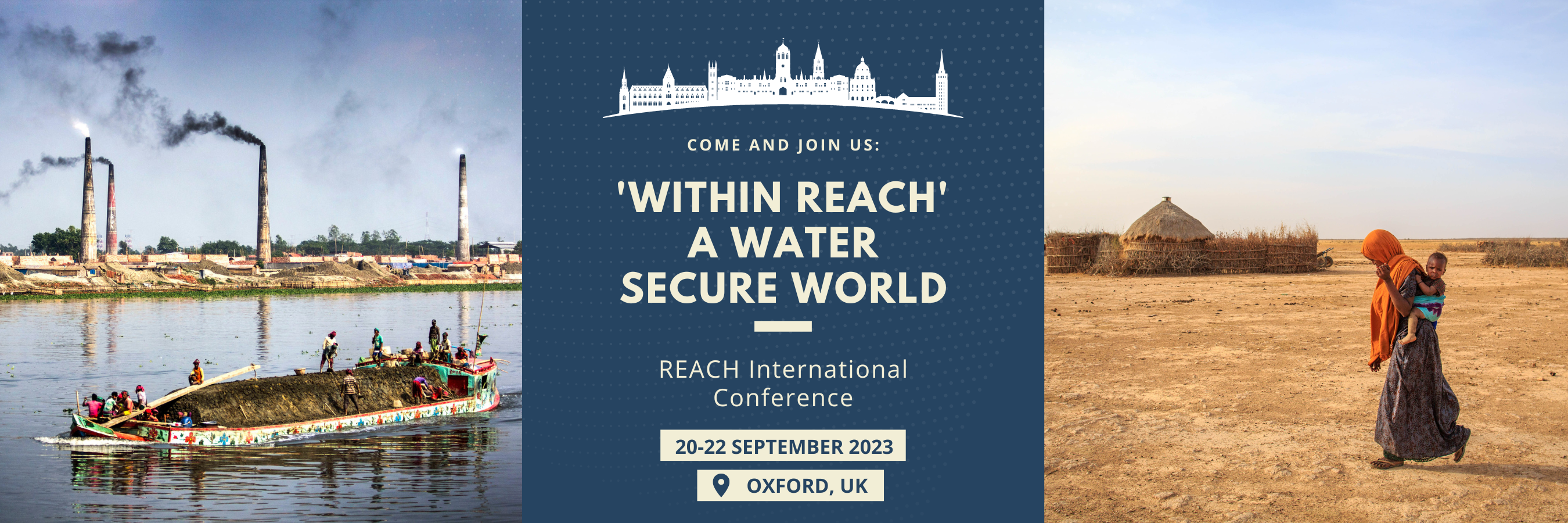Climate shocks, industrial pollution, unsafe drinking water services and food insecurity are increasing, leaving the most vulnerable people to face the greatest risks to their lives and livelihoods. Advances in water security policy and practice are emerging from governments, companies and communities.
However, progress is slow, uneven, and often unsustainable given the scale and scope of water insecurity challenges. How can a government deliver safe drinking water services to one billion people? Why is East Africa so dry? How can climate science shape policy decisions? What is the role of industry to reduce and eliminate pollution in urban rivers? How are governments rethinking water security finance?
On 20-22 September, the REACH international conference brought leaders from government, industry, academia, finance, and civil society together to define the water security agenda to 2030 and beyond. The conference covered how the latest science is shaping policy and practice to address key challenges on climate services, sustainable finance and water quality at local and regional scales.
An inclusive range of speakers – 50% women, 50% speakers from Africa and Asia, 1/3 early career researchers – discussed evidence and insights for governments, industry and development agencies to shape more effective responses, learning from a global coalition of partners.


